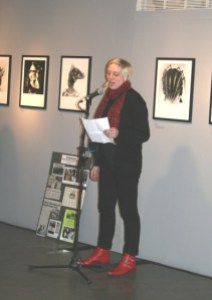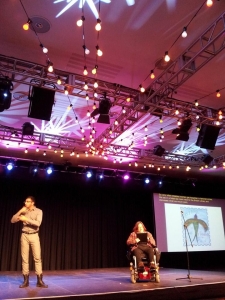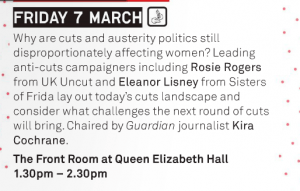

Bringing disabled women together, mobilising
and sharing through lived experiences
Charlotte Gage: speech at WOW party!
Thanks to Sisters of Frida for asking me to speak but really I want to thank them for their involvement in the reporting process for the examination of the UK Government under the International Bill of Rights for Women (CEDAW) last year.
It was really important to have Sisters of Frida involved from the beginning as part of the working group for the report that went to the UN Committee and to ensure that the issues facing disabled women in the UK were included in this. As well as a specific appendix on disabled women, which I hope will also be used for the International Disability Convention which the UK Government is being examined under this year.
It was also really important to have Eleanor and Eleanor from Sisters of Frida at the examination in Geneva last July lobbying the Committee on disabled women’s issues and being a part of the UK delegation. And the results of this work (report written by Armineh Soorenian) can be seen in the recommendations made by the UN Committee to the UK Government which include specific references to disabled women in terms of disabled women’s representation in decision-making, access to employment and access to healthcare, particularly prenatal and reproductive health services.
So it is really great to be able to celebrate with Sisters of Frida tonight and to look forward to more important work ensuring that disabled women’s rights are realised!
Eleanor Lisney : Intersectionality and disability
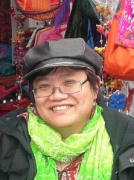 ‚ÄėNothing about us without us‚Äô – how often do we declare and hear that as disabled people? I ve certainly carried placards and shouted the slogan on protests but tonight I want to turn it on its head. Disability intersects class, gender, ethnicity, race, religion, age, and sexual orientation ‚Äď but are they always represented in the disability movement? I was told by a fellow activist that she was asked why Sisters of Frida is needed because she feels discriminated as a disabled person but not for her gender. And my response was that she obviously came from a position of privilege ‚Äď yes she is white, middle class and in a salaried job and unionised. And I assume she never had the experience of feeling trapped in an abusive relationship unable to leave because she was financially dependent and that refuges meant for women escaping from domestic violence were seldom accessible or supported for disabled women. Women‚Äôs Aid outlines particular ways in which disabled women are vulnerable to physical, sexual, psychological and financial abuse ‚Äď and makes the point that ‚ÄúGetting away from abuse is often harder for disabled women because access to help and support is often controlled by the abuser.‚ÄĚ
‚ÄėNothing about us without us‚Äô – how often do we declare and hear that as disabled people? I ve certainly carried placards and shouted the slogan on protests but tonight I want to turn it on its head. Disability intersects class, gender, ethnicity, race, religion, age, and sexual orientation ‚Äď but are they always represented in the disability movement? I was told by a fellow activist that she was asked why Sisters of Frida is needed because she feels discriminated as a disabled person but not for her gender. And my response was that she obviously came from a position of privilege ‚Äď yes she is white, middle class and in a salaried job and unionised. And I assume she never had the experience of feeling trapped in an abusive relationship unable to leave because she was financially dependent and that refuges meant for women escaping from domestic violence were seldom accessible or supported for disabled women. Women‚Äôs Aid outlines particular ways in which disabled women are vulnerable to physical, sexual, psychological and financial abuse ‚Äď and makes the point that ‚ÄúGetting away from abuse is often harder for disabled women because access to help and support is often controlled by the abuser.‚ÄĚ
Racism is embedded in the system and people who have never encountered it can never understand how insidious it can be. And they, yes, even friends, make assumptions and can say things like tokenism when you insist on representation and be condescending about your culture to an extent where it is too hurtful for that friendship to be sustainable. But most of all, the real invisibles and voiceless are those women who have no recourse to legal services – for example, those whose identity documents are held by the abusers so that their residence rights cannot be proven. And how often do we hear about the ones incarcerated in residential homes/ institutionalised which put them at more risk to be exploited and abused, hidden from view.
Disabled women who are discriminated against ‚Äď from feminist communities, LGBT, faith communities because they insist on congregating in non accessible venues. And the segregation is also from the disabled people‚Äôs communities because they do not understand nor interested in other identities. Where do disabled women go to discuss about the roles of being disabled lovers, mothers if they were given the opportunity of being girlfriend, wife or mother. And there are those whose sexuality were being denied or even sterilised (often presumed to be for their ¬†own good). And who knows how to support them when they are raped? A report by Professor Betsy Stanko,¬†stated that the ‚Äėrape of vulnerable women, especially those with learning difficulties, has effectively been ‚Äúdecriminalised‚ÄĚ.
I guess I am speaking about the need for intersectionality also when we talk about disability ‚Äď that we have more than one identity and we ought to acknowledge that ‚Äď and that we should acknowledge we need a space for disabled women as disabled women, we need to listen to the different identities. And feminism needs to accommodate intersectionality too ‚Äď speaking as a disabled woman of colour when I can be the only non white disabled at the table I feel a double disconnect. I m sure some of you here know what I m saying where you stop wanting to engage as a form of self protection.
Harriet Tubman, a disabled American bondwoman who escaped from slavery in the South to become a leading abolitionist before the American Civil War, said ‚ÄėIf I could have convinced more slaves that they were slaves, I could have freed thousands more‚Äô. I think we ought to insist on being intersectional and free people from being locked into labels so that we can build a more inclusive society.
WOW Parties at Royal Festival Hall: Introduction to Sisters of Frida
Good evening! My name is Eleanor and I m the coordinator of Sisters of Frida. We re very happy to be here in celebration with you all. Thank you WoW Parties for including us.
The vision for Sisters of Frida started when Michelle Daley and I were invited by Million Women Rise to speak in 2010. We shouted out at Trafalgar Sq to a few thousand people about the violence against disabled women and the lack of support we get as disabled women. We reminded people that we are women too ‚Äď so very often disabled women get forgotten in feminist circles. ¬†We sat in a hotel tea room next to the British Library and discussed what we would want – a sisterhood to support each other.. Sisters of Frida slowly came into being. We took a long time deliberating on a name. We are disabled women but that is not our only identity ‚Äď we are also embracing the whole package of being women and disabled. And we believe strongly in the social model of disability. We want to celebrate the difference of being of different ethnic origins, different cultures and nationalities, of different sexual orientation, of being mums, having partners and being single women. We are creative and our creativeness is born from our identities ‚Äď of the very pain of being impaired and disabled at times. But we are not victims.
Hence we found a role model in Frida Kahlo. She is not one immediately associated with disability and yet her art was filled with powerful and beautiful  images of the crippled body. She was also an strong activist and she wanted a life full of love, of relationships. In her art we also glimpse the dark landscape of her mental health in the aftermath of still births and in her stormy relationship with Diego Riveria.
 We can strive to live our lives as full as she did. We decided on a logo with the Kolibri or Hummingbird – a symbol for accomplishing that which seems impossible. For the native Americans, the bird is a symbol of rebirth, and of resurrection. It brings special messages for us, in its capacity of going in any direction; the only creature that can stop while traveling at full speed and the only bird that can fly backwards as well as forwards, up and down.
We can strive to live our lives as full as she did. We decided on a logo with the Kolibri or Hummingbird – a symbol for accomplishing that which seems impossible. For the native Americans, the bird is a symbol of rebirth, and of resurrection. It brings special messages for us, in its capacity of going in any direction; the only creature that can stop while traveling at full speed and the only bird that can fly backwards as well as forwards, up and down.
Frida had a special connection with this bird. She painted her eyebrows in the arc of the wings of the hummingbird, perhaps identifying herself with the extraordinary life skills of this colourful, tiny and vulnerable bird with the heart of an eagle. The logo is set in a stamp which fits the idea of the kolibri being a messenger…
Last year we took the message to Geneva, we went with other women NGOs to the 55th session of CEDAW (The Convention on the Elimination of All Forms of Discrimination against Women). Our presence there helped several recommendations on disabled women for the UK Govt from the CEDAW committee. We also realised that we need disaggregated information on disabled women.
But we are very new to this and we not funded at all¬† – we are in the process of becoming a CIC community interest company ‚Äď we hope to get some funding and build some toolkits for women in a cooperative and co productive spirit. There are so many things we need to do. And hopefully we can learn from each other and from the wonderful women gathered here tonight.
Sisters of Frida at the WOW Festival, South Bank
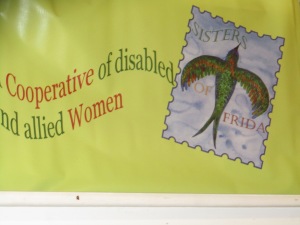 We have been lucky enough to be one of the chosen 8 women organisations for a space at the WoW (Women of the World) Parties at the Royal Festival Hall http://www.southbankcentre.co.uk/whatson/wow-parties-81651
We have been lucky enough to be one of the chosen 8 women organisations for a space at the WoW (Women of the World) Parties at the Royal Festival Hall http://www.southbankcentre.co.uk/whatson/wow-parties-81651
WOW Parties celebrate the work of charities and organisations supporting women in the UK and internationally. We start by joining the other organizations on The Clore Ballroom floor at 6pm and then a private party at 7 30 in the Yellow Room.
We will be celebrating disabled women with Winvisible (Women of visible and invisible disabilities) and UKDHM (who has kindly provided the refreshments) will be joining us. We have the pleasure of Jean Lambert MEP (London), Vivienne Hayes (Women Resource Centre), Annette Lawson (Committee on the Status of Women), Tracey Lezard (Inclusion London) among our guests. ¬†Charlotte Gage will also be speaking about the impact of the presence of Sisters of Frida at the 55th session of CEDAW (The Convention on the Elimination of All Forms of Discrimination against Women) in ¬†Geneva. Other speakers will be Sisters of Frida ‚Äď Anne Pridmore on social welfare reform, Zara Todd as a young disabled woman and Eleanor Lisney on intersectionality and disability.
Eleanor will also be on two panels Friday 7th March Austerity ‚Äď Who Benefits? / Fri 7 March / 1.30-2.30pm / Queen Elizabeth Hall Front Room (located in the foyer) with Rosie Rogers (UK Uncut) and Kira Cochrane¬† (Guardian)
Tickets can be booked for the day
And Sat 8 March /3.30-4.30pm Feminism and Privilege / Queen Elizabeth Hall Front Room (located in the foyer). With Yasmin Alibhai-Brown (chair) Nan Sloane (Centre for Women and Democracy), Reni Eddo Lodge (writer and contributing editor of Feminist Times).
Tickets can be booked for the day (might be sold out)
Sisters of Frida are holding a party at the RFH, Southbank
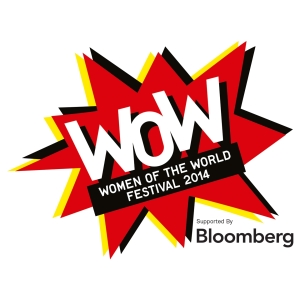 We were lucky enough to be one of the chosen 8 women organisations for a space at the WoW Parties at the Royal Festival Hall http://www.southbankcentre.co.uk/whatson/wow-parties-81651
We were lucky enough to be one of the chosen 8 women organisations for a space at the WoW Parties at the Royal Festival Hall http://www.southbankcentre.co.uk/whatson/wow-parties-81651
WOW Parties celebrate the work of charities and organisations supporting women in the UK and internationally.
We would like you to join us in this opportunity to network and celebrate the lives of disabled women on the 5th March from 6pm.
Please send an email to sisofrida@gmail.com if you would like to come – there are limited places and we have to give the list of guests to the South Bank, so if you would like to come please let us know asap.
The other organisations are
Womankind Worldwide
Sphinx Theatre
Raw Material
Black Feminists
End FGM Campaign
Migrant and Refugee Woman of the Year Awards
Gap Salon/So-So Arts and Female Arts
Fun Palaces
we will be celebrating the lives of disabled women and hope to have an installation in time to share with you.
Please RSVP because there is a limit on space and the Southbank would like to know who s coming,
Winvisible (Women with Visible and Invisible disabilities) will be joining us and many thanks to UK Disability History Month for offering the refreshments.
